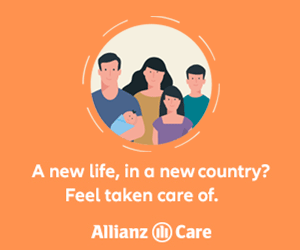Brussels, Belgium
Last updated on May 03, 2023
Summary: The approximate population of Brussels, Belgium is 1.2 million people. People often describe Brussels as a vibrant, international city with a rich cultural heritage. Expats love living in Brussels for its diverse population, excellent public transportation, and its proximity to other European cities. The weather in Brussels is generally mild with temperatures ranging from an average low of 35°F (2°C) in the winter to an average high of 68°F (20°C) in the summer. The average cost of living in Brussels for an expat is estimated to be around $2,500 per month. The cost of a one bedroom apartment in Brussels is estimated to be around $1,200 per month, while a two bedroom apartment is estimated to be around $1,800 per month.
What do I need to know about living in Brussels?
When we asked people what advice they would give someone preparing to move to Brussels, they said:
"Before retiring in Brussels, expats should research the cost of living and the availability of healthcare services. It is also important to familiarize oneself with the local language, as many people in Brussels speak French or Dutch. Additionally, expats should consider the tax implications of retiring in Brussels, as Belgium has a progressive tax system. Finally, expats should research the different neighborhoods in Brussels to find the one that best suits their needs," said one expat in Brussels.
 Traveling Mailbox
Traveling MailboxConnect
Traveling Mailbox serves thousands of travelers, expats, digital nomads, businesses, individuals and others in over 47 Countries by scanning their postal mail so they can view it online anywhere in the world. They provide customer service 7 days a week so if you need assistance, it is just a phone call away. Traveling Mailbox works with Evernote, Bill.com and Dropbox. And, there are Traveling Mailbox apps available for iOS and Android devices.
Click connect to have our partner contact you via e-mail and/or phone.
 Traveling Mailbox
Traveling MailboxTraveling Mailbox serves thousands of travelers, expats, digital nomads, businesses, individuals and others in over 47 Countries by scanning their postal mail so they can view it online anywhere in the world. They provide customer service 7 days a week so if you need assistance, it is just a phone call away. Traveling Mailbox works with Evernote, Bill.com and Dropbox. And, there are Traveling Mailbox apps available for iOS and Android devices.
Connect
Click connect to have our partner contact you via e-mail and/or phone.
What do I need to know before moving to Brussels?
Please login to continue reading this article.
Not a member? Join Today (it's free).
About the Author
 Betsy Burlingame is the Founder and President of Expat Exchange and is one of the Founders of Digital Nomad Exchange. She launched Expat Exchange in 1997 as her Master's thesis project at NYU. Prior to Expat Exchange, Betsy worked at AT&T in International
and Mass Market Marketing. She graduated from Ohio Wesleyan University
with a BA in International Business and German.
Betsy Burlingame is the Founder and President of Expat Exchange and is one of the Founders of Digital Nomad Exchange. She launched Expat Exchange in 1997 as her Master's thesis project at NYU. Prior to Expat Exchange, Betsy worked at AT&T in International
and Mass Market Marketing. She graduated from Ohio Wesleyan University
with a BA in International Business and German.
Some of Betsy's articles include 12 Best Places to Live in Portugal, 7 Best Places to Live in Panama and 12 Things to Know Before Moving to the Dominican Republic. Betsy loves to travel and spend time with her family. Connect with Betsy on LinkedIn.
Additional Information:
- Expat Guide to Brussels
- Healthcare & Health Insurance in Brussels
- Discovering the Best of Brussels
- International Schools in Brussels
- Healthcare & Health Insurance in Belgium
- Best Places to Live in Belgium
- Real Estate in Belgium
- Pros & Cons of Living in Belgium
- How to Rent a Home in Belgium
- Pros and Cons of Living in Belgium 2024
- 2024 Guide to Moving to Belgium

 Brussels, Belgium
Brussels, Belgium

